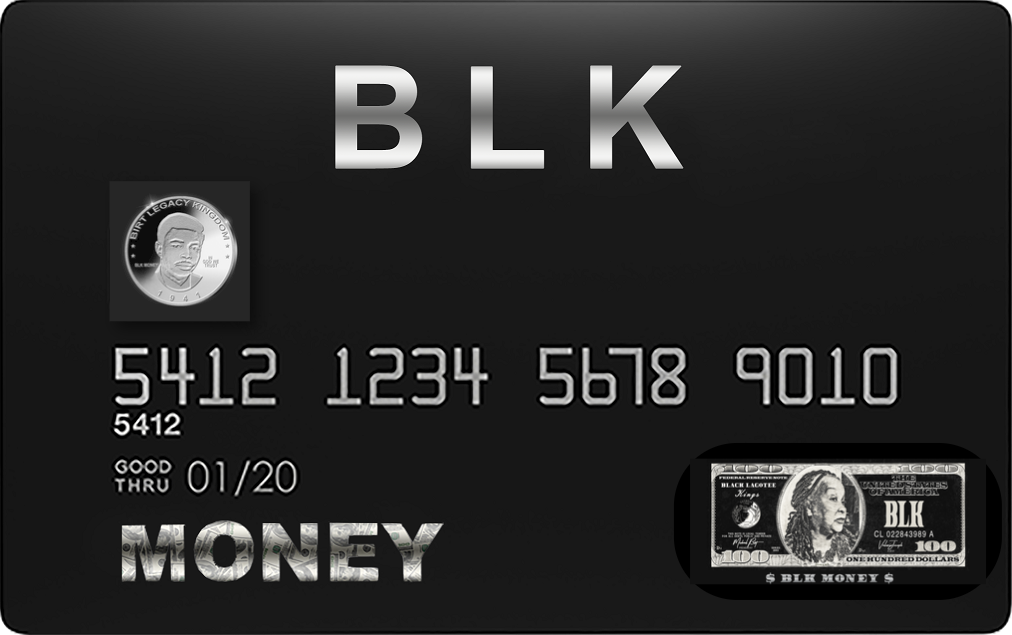Everything You Need to Know About Business Credit Scores … And How to Get the Business Credit You Need.
Some Straight Talk About How to Maintain a Strong Business Credit Score.

What is Business Credit Score?
Business credit is credit under a company’s EIN. It has no association with the owner’s Social Security number. It is separate from personal credit, and therefore a business credit score can differ drastically from your personal credit score.
This is credit in the business’s name and it is based on the business’s ability to pay, not the business owner’s. When done right, it is possible to get some business funding based on a business credit score without a personal guarantee. Also, you, the business owner, aren’t personally liable for the credit the business gets.
However, your personal credit score can still affect your ability to get funding. In some cases, such as with FICO SBSS, personal credit is even used in the business credit score calculation. What other information is used to calculate your business credit score? Is it really possible to get funding without a personal guarantee? It depends on the lender, and the credit reporting agency (CRA) they choose to use.
D&B Business Credit Scores
D&B constantly gathers data and works to improve its analyses to ensure the greatest degree of accuracy possible. To ensure as accurate a report as possible, it quite literally pays to provide D & B with your company’s current financial statements.
PAYDEX
The PAYDEX Score is Dun & Bradstreet’s main score. It tells the lender how well your business has paid the bills over the past year. D & B bases this score on trade experiences documented by vendors. It ranges from 1 to 100. The higher the score, the lower the perceived risk. In business credit terms, it is the most similar to the personal FICO score. This is why it is the most popular business credit option among lenders.
In order to get a PAYDEX score, you need a D-U-N-S Number. This 9-digit number is a unique identifying number that works to establish a business credit file with D & B. A D-U-N-S (Data Universal Number System) works to keep accurate and timely data on over 250 million businesses around the globe. You want your business to be one of them.
From an identification standpoint, it makes a lot of sense. With the use of this identifier, errors can be kept to a minimum. As a result, Dun & Bradstreet will never confuse your business with someone else’s.
Dun & Bradstreet requires that you register your company for free on their site to get a number. There are a few other ways to get a D-U-N-S if your business belongs to a special class. These include if it is a US government contractor or grantee, your company is Canadian, or you are working as an Apple developer.
Registration is fast and simple. Once you have said yes to their Terms and Conditions, you are taken straight to a dashboard where you either ask for a D-U-N-S number or you look up to see if your business is already listed. If it is already on the big list, then you click on your company’s name to make any needed changes.
How it’s calculated
Dun & Bradstreet’s PAYDEX business credit score has a basis in payment details which are reported to the bureau. Or they may be reported to data-gathering businesses partnering with the agency.
D & B uses this data, as well as a credit score and financial stress score, so as to advise just how much credit a creditor should extend to your business.
To get a PAYDEX number, you have to have a D-U-N-S number, plus the bureau will need to have reports of your payments with four or more vendors. Dun & Bradstreet needs both a D-U-N-S number and four or more reported payment experiences in order to generate a PAYDEX score. If you’re missing any of these elements, then your business will not have a PAYDEX score.
Your business’s PAYDEX score reveals if your payments are typically made on schedule or ahead of schedule. As you might expect, a higher number is better.
It will take 30 days from the reporting of your fourth payment experience for your business to get a PAYDEX score.
6 Different Types of D&B Scores
There isn’t just one Dun and Bradstreet business credit report. They offer six different types of reports. Dun and Bradstreet credit reports are used frequently by lenders to help determine the fundability of a business. That is, whether a business can make money and whether it can pay back a loan or credit.

Commercial Credit Score
Along with the PAYDEX score and other reports above, Dun & Bradstreet also issues a commercial credit score in three parts. Each part predicts how likely the business is to default on bills or become delinquent. This kind of predictive scoring helps a credit determine what might happen with a company in the future based on current data.
How Does D&B Get Their Information?
They use what they call the Dun & Bradstreet Data Cloud. According to them, it is “the world’s most comprehensive business data and analytical insights to power today’s most crucial business needs.” But, where does the information in the data cloud come from? It’s pulled from a number of sources including public records, payment histories reported by creditors, information from the company itself, and other data agencies such as LexisNexis and the Small Business Finance Exchange among others.
Equifax Business Credit Report
Like PAYDEX, Equifax’s payment index is a measurement on a scale of 1 to 100. It shows how many of your small business’s payments were made on time. It uses data from both creditors and vendors. But it’s not meant to anticipate future behavior. That is what the other two scores are for.
The small business credit risk score for financial services predicts the likelihood of severe delinquency or charge-off over the next 12 months. It is measured on a scale of 101-992. The lower the score, the higher the risk.
Like PAYDEX, Equifax’s payment index is a measurement on a scale of 1 to 100. It shows how many of your small business’s payments were made on time. It uses data from both creditors and vendors. But it’s not meant to anticipate future behavior. That is what the other two scores are for.
Equifax’s business failure score takes a look at the risk of your business shutting down. It runs from 1,000 to 1,600 and bases its scoring on a few different factors. The total balance to total current credit limit is a big one. So is the average utilization in the past three months. Equifax also takes note of the amount of time since the opening of the oldest financial account. So is your small business’s worst payment status on all trades in the last 24 months. After that it considers, proof of any non-financial transactions (like merchant invoices) which are late or are on a charge off for two or more billing cycles.
For the credit risk and the business failure scores, a rating of 0 means bankruptcy.
The Payment Trend shows a 12-month payment trend in comparison to the industry norm. It measures the average days beyond terms by the date reported for non-financial accounts only.
This trended data is used to identify businesses more likely to default or declare bankruptcy, and to monitor on-going account activities. It is also used to refine and monitor underwriting and modeling strategies, predict propensity to pay, and identify abnormal spending patterns to reduce fraud and delinquency.
Experian Business Credit Report
How Does Experian Business Credit Calculate the Intelliscore Plus Score?
One of the things Intelliscore is most known for is the identification of key factors. These can show how likely a business is to pay its debt. Over 800 commercial and owner variables go into calculating Intelliscore Plus. Many of them are from the list of general information all credit agencies look at. But some are more detailed or even unique to Experian. Here is how they are broken down.
Payment History
This is your current payment status. It’s how many times accounts have become delinquent. It also shows how many accounts are currently delinquent, and overall trade balance.
Frequency
This one shows how many times your accounts have gone to collections. It also notes the number of liens and judgments you may have against you and your business. It also shows any bankruptcies related to your business or personal accounts.
Frequency also incorporates information about your payment patterns. Were you regularly slow or late with payment? Did you decrease the number of late payments over time? That affects your score.
Monetary
This specific factor focuses on how you make use of credit. For example, how much of your available credit are you using right now? Do you have a high ratio of late balances when compared with your credit limits?
Of course, if you are a new business owner, a lot of this information will not exist yet. Intelliscore Plus handles this by using a blended model to identify your score. This means your personal credit score becomes part of determining your business’s credit score.
FICO SBSS
The FICO SBSS is the business version of your personal FICO credit score. It is becoming more common for lenders to use this score, rather than the Experian business credit score or even the D&B PAYDEX. It stands for FICO Liquid Credit Small Business Scoring Service.
Unlike your personal FICO, the SBSS reports on a scale of 0 to 300. The higher the score, the better. But most lenders demand a score of at least 160.
How is the FICO SBSS Scored?
This score is vastly different from other business credit scoring models. The SBSS uses your business and personal credit scores. It also uses financial information like business assets and revenue. It aims to give a total global financial picture rolled into one score.
Business owners cannot access their FICO SBSS on their own. There is a proprietary formula for score calculations. FICO does not make that information public. You go into a lender blind about what your FICO SBSS credit score may be. This is unlike with the other credit agencies, where you can get a copy of your credit report and know where you stand.
The reason that the FICO SBSS does not work the same way is that you could have a different score from lender to lender. This is due to how lenders ask for and get your FICO SBSS score.
The FICO SBSS Scoring Process
The process starts when you turn in your application. It will include all the financial documentation required by the lender. Then the lender processes the information and sends it to FICO with a request for your SBSS score. At this point, the lender can ask for certain factors in the score to weigh more than others. For example, a lender can put more weight on your personal credit score or your business credit. They could choose to weigh annual revenue as more important than payment history. It is their choice. As a result, your FICO SBSS score could vary between lenders.
First, FICO gets the request from the lender. FICO then searches business credit information from business CRAs. These include D&B, Experian, and Equifax. If they cannot pull enough scoring information from one, they move onto the next. If there is not enough data from any of them, then it uses personal credit and business financials only.
With the lender’s weighting preferences, personal credit, business credit, and business financial data, they calculate the FICO SBSS. This information is specific to that lender.
Personal Credit Scores
Equifax, FICO, and Experian report on personal credit as well. Dun & Bradstreet does not; the big personal CRA (aside from Experian, Equifax, and FICO) is TransUnion.
The FICO is probably the most commonly used personal credit report, but they all count. They can each vary, but usually only slightly.
Business Credit Scores
Personal Credit Scores
The biggest difference is that a business credit score is based on the business’s ability to pay, not the owner’s. However, business credit differs from personal credit in a number of other ways as well. Various factors affect your business credit score in ways vastly different from how they affect personal credit. Each of these factors affects business credit and personal credit differently.
How Do I Check My Business Credit Scores?
It is important to know what is happening with your credit. Make certain it is being reported and take care of any mistakes ASAP. Get in the habit of taking a look at credit reports and digging into the specifics, not just the scores.
Currently, at D&B you can monitor at: www.dandb.com/credit-builder. At Experian, you can monitor your account at: sbcr.experian.com/pdp.aspx?pg=Sample&link. And at Equifax, you can monitor your account at: www.equifax.com/equifax-complete/Equifax.
In late 2020, D&B monitoring prices range from $149 to $199 per month. Experian monitoring products range from $39.95 to $1495 currently. Prices can change at any time, so check directly with the credit reporting agencies for current pricing.
At BLK Money you can Monitor your Business credit scores and reports with D&B, Experian, and Equifax for only $24/ month.
